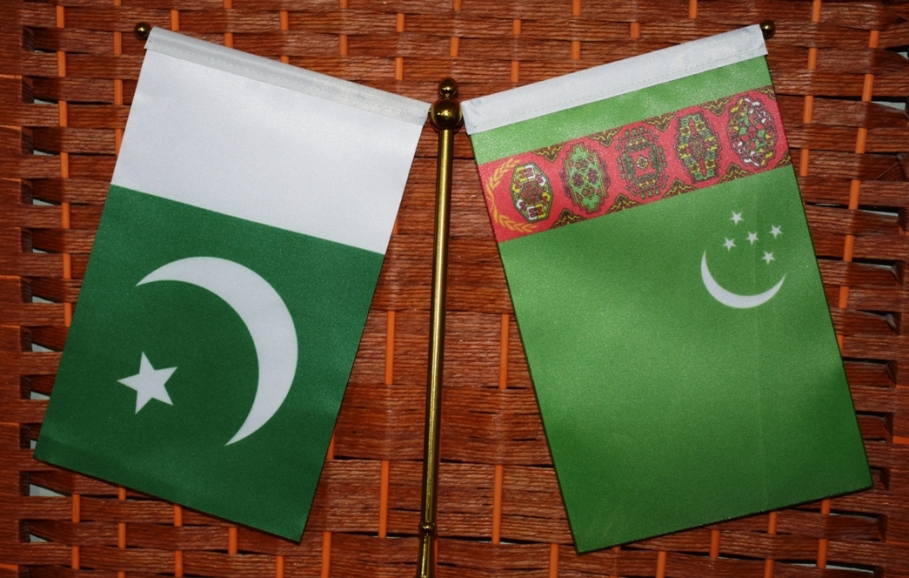
Tariq Saeedi
Ashgabat, 17 March 2016 (nCa) — President Berdymuhamedov of Turkmenistan, accompanied by a powerful delegation, visited Pakistan, 16-17 March 2016.
He had separate talks with the president, the prime minister and the speaker of the parliament of Pakistan. TAPI (Turkmenistan-Afghanistan-Pakistan-India gas pipeline project) was at the top of the agenda in all of these meetings, where Pakistan assured full support for speeding up the implementation of the project and reducing the project costs
The Quaid-e-Azam University Islamabad, one of the top 500 universities in the world, conferred honourary PhD on the Turkmen leader.
The joint business forum brought the business communities of the two countries together, paving the way for direct interaction based on mutual preferences and market demands.
The joint communiqué, issued in Islamabad on 16 March 2016, neatly sums up the outcome of the visit, highlighting the regional outlook underpinning the dialogue. This was further strengthened when the president of Turkmenistan and prime minister of Pakistan met again in Murree hill resort on 17 March 2016 and attended the authoritative briefing on the regional projects of Pakistan including the CPEC (China-Pakistan Economic Corridor) and the Gawadar deep sea port. Pakistan emphasized that both CPEC and Gawadar seaport would be of immense benefit for Central Asia including Turkmenistan.
During the visit, the leaders of Turkmenistan and Pakistan saw yet again that their vision fully resonates with each other at all levels; this augers well for the entire region.
In the initial round of talks Nawaz Sharif said that Pakistan doesn’t look at TAPI merely a gas pipeline. It is part of the corridor that also contains a road link and electricity transmission and fiber optics connections, said the Pak PM.
The president of Pakistan said that the brotherly countries of Central Asia should consider Gawadar as their own port, giving them full and unhindered access to the warm waters of the Indian Ocean. After all, Gawadar offers the shortest distance to sea for the landlocked Central Asia, he said.
Pakistan also said that it would like to link with the North-South (Kazakhstan-Turkmenistan-Iran) railway link. This can be done in the multimodal transportation format where back to back rail connection is not immediately necessary for connectivity though it would be greatly helpful to build later the missing railway links.
Connectivity is at the core of the foreign policy of Turkmenistan, which is based on proactive neutrality.
The North-South railway line, where the first train carrying test cargo recently traveled from China to Iran in record time, would not have been possible without huge political and financial contribution from Turkmenistan.
Turkmenistan is spearheading the TAT rail (Turkmenistan-Afghanistan-Tajikistan railway line) that will help pull the economies of Afghanistan and Tajikistan to the next level.
Turkmenistan is revamping and upgrading all of its main highways and is also in consultation with IRC (International Road Union) for the construction of a model highway.
The modernization of the Turkmenbashy Port is a mega project that will make it the most modern port in the Caspian.
It is logical that connectivity initiatives of Turkmenistan should integrate with the connectivity projects of Pakistan, creating a robust network for lasting and irreversible prosperity for the entire region.
There are two levels that constitute the outcome of the visit of President Berdymuhamedov to Pakistan. At the first level, it was like any other round of consultations between the two countries where both sides try to find the common areas for bolstering the partnership. However, the next level makes it exceptional where Turkmenistan and Pakistan went out of their way to look at the benefits that can be brought to the entire region, mainly through connectivity.
To be continued . . .